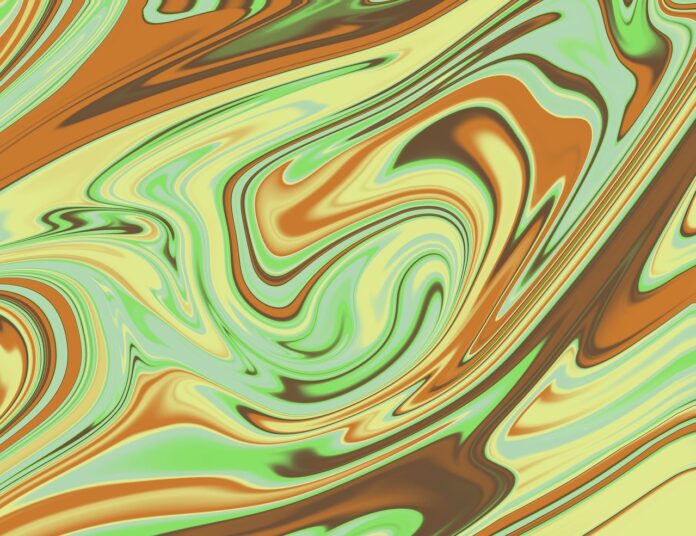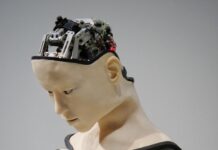Simulated Reality, a concept that has intrigued philosophers, scientists, and futurists for decades, posits that our perceived reality may be a sophisticated simulation generated by advanced beings or technology. At its core, Simulated Reality challenges our fundamental understanding of existence and consciousness, raising profound questions about the nature of reality, the nature of self, and the nature of perception. While the idea of Simulated Reality may seem like science fiction, advances in technology and our evolving understanding of the universe have prompted serious consideration of its possibility. From thought experiments and philosophical inquiries to scientific research and technological simulations, the exploration of Simulated Reality spans multiple disciplines and continues to captivate the imagination of scholars and thinkers worldwide.
Simulated Reality has its roots in ancient philosophical traditions, with early thinkers pondering the nature of reality and the possibility of illusions and deception. However, it wasn’t until the advent of modern science and technology that the concept began to gain traction as a subject of serious inquiry. In recent years, advances in computing power, artificial intelligence, and virtual reality have fueled speculation about the feasibility of creating realistic simulations indistinguishable from physical reality. This has led to renewed interest in Simulated Reality among scientists, technologists, and philosophers, sparking debates about the nature of consciousness, the nature of identity, and the ethical implications of creating simulated worlds inhabited by sentient beings.
Simulated Reality, as envisioned by proponents of the hypothesis, posits that our universe may be a computer-generated simulation created by an advanced civilization or intelligence. In this scenario, the physical laws and phenomena that govern our perceived reality are programmed into the simulation, giving rise to the illusion of a vast, interconnected cosmos inhabited by conscious beings. Advocates of Simulated Reality argue that such a simulation could be indistinguishable from physical reality, with simulated beings experiencing sensations, emotions, and perceptions just like their counterparts in the “real” world. This raises profound questions about the nature of consciousness, free will, and the existence of objective reality, challenging our deeply held assumptions about the nature of existence.
The concept of Simulated Reality has sparked intense debate and speculation among scholars and thinkers across various disciplines. Philosophers grapple with questions about the nature of truth, the nature of perception, and the nature of knowledge in a simulated universe. Scientists explore the feasibility of creating simulated worlds using advanced computer algorithms and artificial intelligence, conducting experiments to test the limits of virtual reality and immersive technology. Technologists and futurists ponder the ethical implications of creating simulated beings with consciousness and autonomy, raising concerns about the potential for exploitation, manipulation, and existential crisis.
Despite the speculative nature of Simulated Reality, some proponents argue that there may be empirical evidence to support the hypothesis. For example, anomalies in the laws of physics, such as the existence of quantum indeterminacy and the fine-tuning of physical constants, could be interpreted as artifacts of a simulated reality. Similarly, the discovery of limits to physical computation and information storage could suggest constraints imposed by the underlying simulation framework. However, skeptics counter that such anomalies can be explained by other scientific theories and do not necessarily imply the existence of a simulated universe.
As our understanding of the universe and technology continues to evolve, the exploration of Simulated Reality raises profound questions about the nature of existence and our place in the cosmos. Whether it remains a speculative hypothesis or evolves into a scientifically testable theory, Simulated Reality challenges us to reconsider our assumptions about reality, consciousness, and the nature of the universe. As we delve deeper into the mysteries of existence, the quest to unravel the truth behind Simulated Reality promises to be a journey of discovery and enlightenment, shaping our understanding of the universe and ourselves in profound and unexpected ways.
The implications of Simulated Reality extend far beyond theoretical speculation, touching on existential, philosophical, and ethical dimensions that resonate deeply with human experience. From the existential angst of questioning the authenticity of our reality to the philosophical inquiry into the nature of consciousness and perception, Simulated Reality invites us to confront fundamental questions about the nature of existence and our place within it. The concept challenges traditional notions of reality and truth, prompting us to reconsider our understanding of the world and our relationship to it. In a simulated universe, the distinction between what is “real” and what is “simulated” becomes blurred, leading to profound existential and philosophical dilemmas.
One of the most intriguing aspects of Simulated Reality is its potential to shed light on the nature of consciousness and the mind-body relationship. If our reality is indeed a simulation, what does that imply about the nature of consciousness and the self? Are our thoughts, feelings, and perceptions simply byproducts of the simulation, or do they possess a deeper significance beyond the confines of the virtual world? Philosophers and neuroscientists grapple with these questions, exploring the nature of subjective experience and the mechanisms underlying consciousness in both simulated and non-simulated realities.
The ethical implications of Simulated Reality are equally profound, raising questions about the rights and moral status of simulated beings, as well as our responsibilities as creators and inhabitants of simulated worlds. If sentient beings exist within a simulated universe, do they possess inherent rights and autonomy, or are they merely artifacts of a larger simulation? Should we intervene in their world, and if so, to what extent? These ethical dilemmas challenge us to consider the implications of our actions in simulated environments and the potential consequences for sentient beings that may inhabit them.
While the concept of Simulated Reality remains speculative, advances in technology and our understanding of the universe are bringing us closer to the possibility of creating realistic simulations indistinguishable from physical reality. Virtual reality technologies offer immersive experiences that blur the boundaries between the virtual and the real, while artificial intelligence algorithms enable increasingly sophisticated simulations of complex systems and environments. As these technologies continue to advance, the line between what is “real” and what is “simulated” becomes increasingly blurred, prompting us to grapple with the implications of living in a world where the distinction between reality and simulation is no longer clear-cut.
In the face of these profound philosophical, existential, and ethical questions, the exploration of Simulated Reality challenges us to confront our assumptions about the nature of existence and our place within the universe. Whether Simulated Reality remains a speculative hypothesis or evolves into a scientifically testable theory, its implications for our understanding of reality, consciousness, and ethics are profound and far-reaching. As we continue to probe the mysteries of the cosmos and the nature of consciousness, the quest to unravel the truth behind Simulated Reality promises to be a journey of discovery and self-discovery, reshaping our understanding of the universe and our place within it in profound and unexpected ways.

















